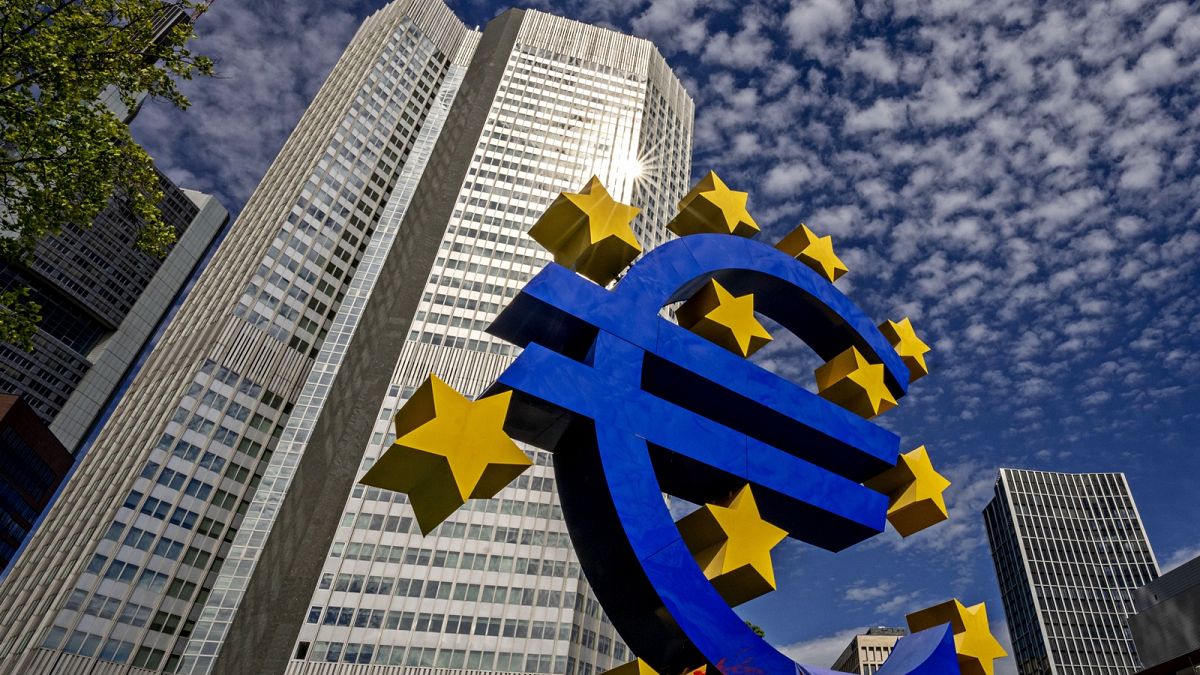The latest proposal from the European Commission comes on the heels of financial turmoil caused by the collapse of three US banks.
As markets gradually return to normalcy following weeks of turbulence, the European Commission has unveiled a new set of rules to further protect deposits, prevent bank runs and ensure taxpayers do not end up footing the bill every time a financial institution falls victim to its own mismanagement.
The rules centre on resolution, the specific process for failing banks that are too big and too important to undergo ordinary liquidation proceedings because doing so might trigger financial instability and harm the wider economy.
Resolution is considered less disruptive than liquidation and allows insolvent banks to continue their critical operations, including lending and payments, while a restructuring takes place.
Brussels wants to expand the criteria for resolution and make medium-size banks eligible for tools that are usually reserved for their larger counterparts, such as the partial sale of business or the transfer of deposits from an ailing to a healthier bank.
The reform maintains the legal protection of deposits worth up to €100,000 but opens the door for shielding higher amounts stemming from life events like inheritance and real estate transactions.
The protection will be broadened to cover schools, universities, hospitals, municipal administrations and investment firms, among others.
Should a bank run into trouble, the first fix will remain its own loss-absorbing resources, which institutions must always hold at a minimum level set by law.
If these resources are not enough to safeguard deposits, the bank will be allowed to tap into Deposit Guarantee Schemes (DGSs) or the Single Resolution Fund (SRF), two emergency funds that are sustained by banks and financial institutions themselves according to their size and risk.
These industry-funded safety nets avoid the use of taxpayers' money to subsidise bank rescues and their use will be subject to strict conditions.
DGSs and the SRF are projected to reach €55 billion and €80 billion respectively by the end of 2024.
"This is banks' money, not depositors' money," Mairead McGuinness, the European Commissioner for financial services, said on Tuesday while unveiling the legislation.
"We're not keeping failing banks alive with that money."
In the end, the insolvent bank will pull out of the market, McGuiness noted.
Orderly collapse
Tuesday's proposal, whose publication has been delayed several times, comes on the heels of the spectacular, back-to-back collapse of three American banks – Silicon Valley Bank (SVB), Silvergate Bank and Signature Bank – and the government-brokered takeover of Credit Suisse, Switzerland's second-largest lender.
The convergence of these dramatic events in such a short period of time raised concerns of a domino effect and a fresh financial crisis that could have compounded the already deep economic pain caused by Russia's war in Ukraine, the power crunch and soaring inflation.
Although that worst-case scenario has – thus far – failed to materialise, the sole possibility was enough to give policymakers pause and shed light on one of the bloc's most glaring unfinished tasks: the banking union.
To this day, the third pillar of the banking union, called the European Deposit Insurance Scheme (EDIS), remains stuck in negotiation since 2015 as countries disagree on how to design a supranational safety net that would grant an equal level of protection to all deposits across the eurozone, regardless of the bank's location or the country's fiscal health.
With the sharing of risks out of the question, the European Commission has opted for an intermediate step of sorts: to harmonise and strengthen rules on bank bailouts and deposit guarantees.
The latest version of the bank crisis management and deposit insurance (CMDI) framework reworks rules that currently exist but are not uniformly available or applied by all eurozone members.
This means the proposal avoids the politically divisive path of creating a brand-new EU-wide scheme, such as the one envisioned under the banking union's pending third pillar.
In practice, the CDMI is an attempt to close the legislative vacuum between large banks considered "too big to fail," which are managed through resolution, and small-size banks, whose liquidation usually takes place through ordinary court proceedings.
The Commission did not specify how many eurozone banks would fall under the mid-size category and therefore benefit from the revised rules.
Instead, it will be up to national authorities to determine on a case-by-case basis if a troubled bank is significant enough to go through resolution or liquidation.
The executive's ultimate goal is to make the collapse as orderly as possible, build up confidence among depositors and prevent rushed withdrawals like the one that precipitated the downfall of Silicon Valley Bank.
The draft laws will be negotiated and likely amended by member states and the European Parliament before entering into force.
"We're not expecting easy debates," said Valdis Dombrovskis, the European Commission's Executive Vice-President, who also took part in the presentation.
Asked if the 2015 proposal to complete the banking union was still valid after such a protracted deadlock, Dombrovskis said the text was still "pertinent."
"We see this (reform) as a first step that could indeed pave the way for renewed discussions on other important files to finalise the banking union," Dombrovskis said.



